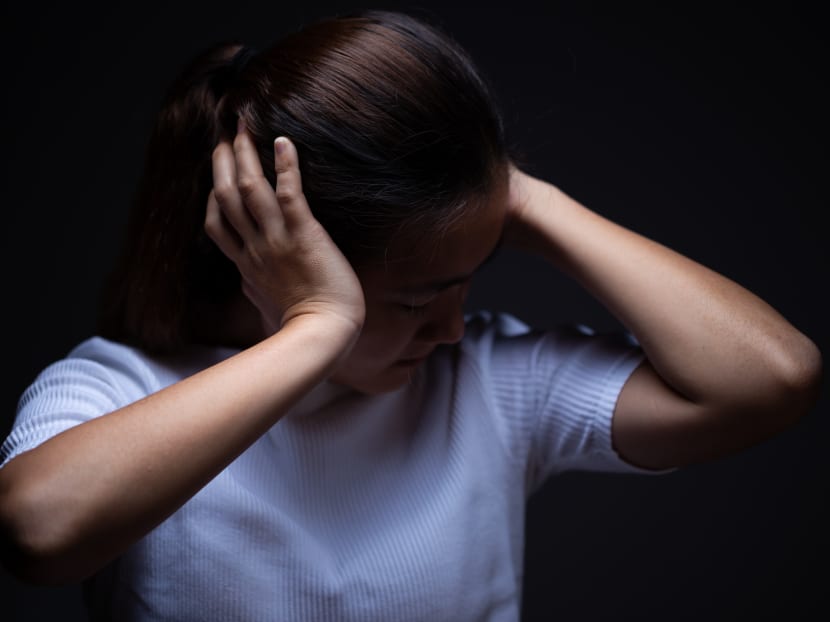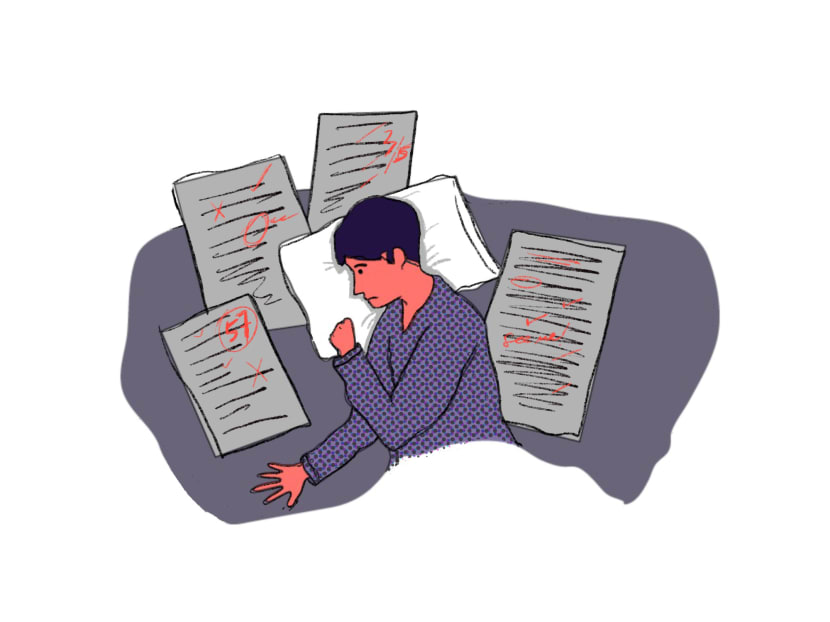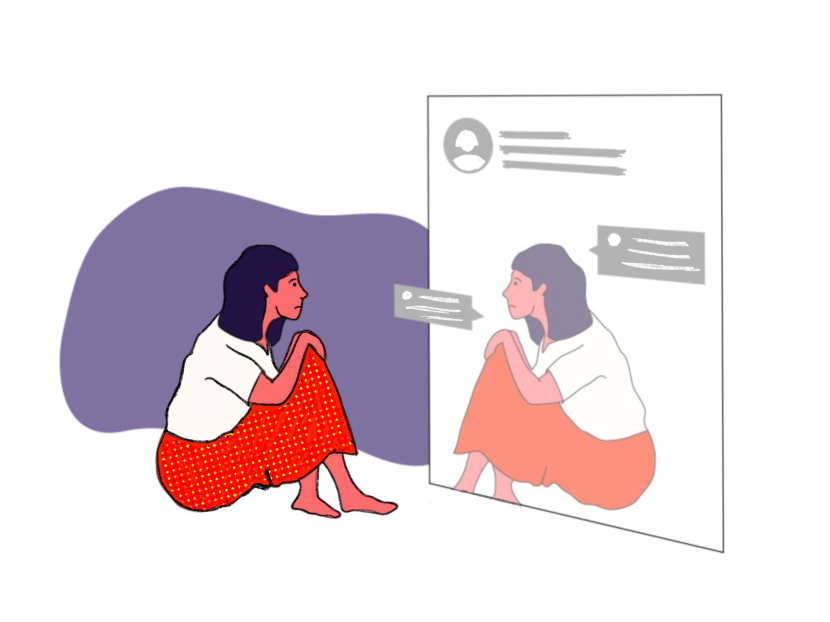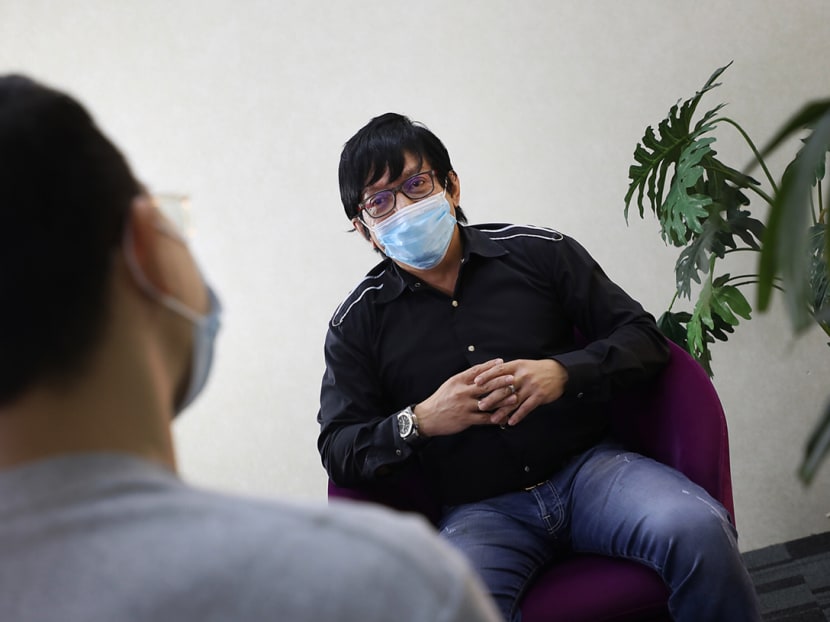The Big Read in short: Covid-19 fallout spells trouble for students’ mental health
Each week, TODAY's long-running Big Read series delves into the trends and issues that matter. This week, we look at the mental well-being of students in the wake of an alleged murder by a 16-year-old student at River Valley High School. This is a shortened version of the full feature.

While TODAY’s interviews found that parents and students are becoming more aware of mental well-being counsellors said that one perennial problem remains: The stigma attached to children’s mental health issues, especially among parents.
Each week, TODAY's long-running Big Read series delves into the trends and issues that matter. This week, we look at the mental well-being of students in the wake of an alleged murder by a 16-year-old student at River Valley High School. This is a shortened version of the full feature, which can be found here.
- The mental health of students is in the spotlight following an alleged murder at River Valley High School which shook the nation
- The Covid-19 pandemic and reduced interactions in school have exacerbated perennial stress factors
- Some teachers and parents say they’ve noticed children becoming more subdued and withdrawn, and counsellors warn of a prolonged impact on students’ mental health
- Parents and students say that the stigma on mental health issues is slowly diminishing, but more can be done
- Students interviewed said they are quite open to seeking help, although some are unsure how their parents would react when they know about it
SINGAPORE — When Sam (not his real name) graduated from primary school and started classes in secondary school four years ago, he found it tough to make friends.
He was left out of groups, and his overtures to make friends were mocked for being “attention-seeking”. This was hard for him to comprehend as he was a popular student with many friends in his primary school.
The sadness and frustration started to build up within Sam — who declined to be named due to the sensitivity of the topic — and eventually came to a head in Secondary One, where he found himself being taunted again, after being accused by his classmate of defacing the artwork of another.
As they continued to pin the blame on him, Sam started to ask himself what he did to deserve this and why the classmate who accused him was so popular and had so many friends.
“(And) suddenly, I had violent thoughts in my head” recounted Sam. He then grabbed the nearest weapon he could find — a compass (mathematical measuring instrument) which had a sharp pointy end — to attempt to attack his accuser.
A classmate was able to stop him just in time, and Sam found himself sitting in his school counsellor’s office several days later.
The counselling sessions, which lasted that whole year, left a lasting impression on Sam, who is now in Sec 4.
The 16-year-old continues to apply his counsellor’s lessons on how to manage his reactions appropriately.
The issue of mental health among school students in Singapore has been thrown into the spotlight following the tragic incident at River Valley High School recently, where a 13-year-old student was allegedly killed by a 16-year-old classmate.
Police investigations revealed that the older teenager — who has been charged with murder — had previously attempted suicide in 2019 and was a patient at the Institute of Mental Health (IMH).
In a ministerial statement on students’ mental health on Tuesday (July 27), Education Minister Chan Chun Sing said that Singapore must do all it can to help children “find their footing in an intense environment”.
Mr Chan also announced several new measures to boost mental well-being in schools, including the deployment of more teacher-counsellors, and getting teachers to receive enhanced professional development on mental health literacy.
Apart from coping with perennial stressors of the educational system and growing up in the social-media age, students in the past 17 months and counting have had to deal with the fallout from the Covid-19 pandemic. And this presents a formidable challenge for some, said counsellors, teachers, parents and students interviewed.
While TODAY’s interviews found that parents and students are becoming more aware of mental well-being counsellors said that one perennial problem remains: The stigma attached to children’s mental health issues, especially among parents.
COVID-19: A NEW PRESSURE POINT
Statistics provided by Mr Chan, in a written parliamentary response separate from his ministerial statement, showed that the incidence of suicide among young people aged 10 to 19 rose last year, compared with 2019, as part of an overall increase in people here taking their own lives during the pandemic.
Mr Chan said that Covid-19 had aggravated existing stressors for students, such as academic-related difficulties, by disrupting students’ normal routines and creating a heightened sense of uncertainty.
Counsellors said they had seen a spike in the number of students turning to them for help during the pandemic, amidst an already increasing trend over the past few years.
Singapore Counselling Centre said that the period between June last year and June this year saw its biggest rise in cases in the last four years. However, the centre declined to provide actual numbers, citing confidentiality.

Counsellors said that the restricted interactions with others due to Covid-19 safe distancing measures have exacerbated mental health issues faced by children here.
Nevertheless, the Ministry of Education (MOE) said in response to TODAY’s queries that the number of students who have seen or have been referred to their school counsellors for social, emotional or mental health issues has remained “largely stable” over the last few years.
Since the pandemic started early last year, students have gone through several periods of home-based learning (HBL), and have to abide by strict safe distancing measures in schools, such as sitting individually and apart in classrooms.
Dr Ong Say How, chief of the department of developmental psychiatry at IMH, said that when HBL was first implemented last year, students might have felt increasingly more isolated from peers and the supportive environment of school, leading to aggravation of their mood and anxiety symptoms.
With social interactions key to helping students build resilience, reduced opportunities to interact with peers in schools could lead to more students feeling stressed, said former school counsellor and family life educator, Mr Gary Koh.
The problems faced by students amid an unprecedented pandemic are on top of perennial issues, such as the pressures of the education system, and growing up with social media, said counsellors.
Apart from the need to prove themselves academically, young people these days have to be active participants in co-curricular activities (CCAs) and take on leadership positions in schools to stand out among their peers, said Ms Sophia Goh, the principal counsellor of Sofia Wellness Clinic
Jane, a first-year student at a junior college (JC), said that coping with a new academic environment had taken a toll on her mental health.
The longer school hours, coupled with additional hours for after-school activities, mean that the 17-year-old can reach home as late as 9pm.
“For someone like me who is struggling with time management, trying to complete homework in a tired physical and mental state after a long day, this often results in my productivity levels dropping and having to pull all-nighters to get work done,” she said.
She declined to be named as she did not want to worry her family members.
Apart from the elevated pressures of the education system, youths are also growing up with social media. This has increased the pressure of social comparison where young people measure themselves against others, said counsellors.

IMPACT OF REDUCED SOCIAL INTERACTIONS
While parents interviewed by TODAY said they have noticed that their children’s social interactions have been affected by Covid-19 curbs, they are divided on whether this would be detrimental to their children in the long run.
Ms Joey Lim, a 37-year-old special needs educator with two sons in primary school, said that while Covid-19 could impact her children’s socialisation skills, she believes they are “healthy enough” and will “have their own way of balancing (the stress)”.
Other parents, however, believe that the reduced peer interaction in schools could have a long-term impact on the mental health of their children.
Mdm Chan, who declined to provide her full name, said that her eight-year-old son, who is in Pri 2, felt lonely in school and did not feel close to his friends or teachers.
The 44-year-old stay-home mother worried that this will reduce his ability to trust and feel secure in an unfamiliar environment as he grows older.
LOOKING OUT FOR STUDENTS IN SCHOOL
In his ministerial statement, Mr Chan acknowledged that Covid-19 had disrupted the social and support networks faced by young people, leading to periods of anxiety and loneliness for many.
To strengthen the mental health support system for students here, he said that the number of teacher-counsellors in school will be increased by more than 1,000 over the next few years — up from over 700 currently, while more school counsellors will also be recruited.
Speaking to TODAY, several teachers said they have observed different reactions from their students as they adapt to a “new normal”.
While some felt that social interactions among students have been reduced, which could pose a problem in the long term, others said that their students have adjusted well.
The teachers interviewed spoke on condition of anonymity as they were not authorised by MOE to speak to the media.
Students, too, offered mixed accounts on the pandemic’s impact. While Sam felt that the changes in school had not affected him, Jane said that she had found it harder to build a strong friend support group given the limited interaction with others in school.
While several measures related to students’ mental well-being are already in place, such as peer support systems in schools to encourage students to look out for one another, some parents said much more needs to be done to support their children’s mental health.
Mr Maran Gopala Krishnan, a 49-year-old director of marketing and communications at a food-and-beverage company, said that looking out for mental health issues in children should be a “shared responsibility” between parents and teachers.
While parents should monitor their children at home, teachers should alert parents to changes in their students’ behaviour.
With reduced interactions between students likely to continue for quite some time, Mr John Shepherd Lim, the chief well-being officer of Singapore Counselling Centre suggested that up to eight counsellors should be deployed to schools, up from the current maximum of two. On top of resuming CCAs, Mr Koh, the former school counsellor, said that teachers can incorporate “more fun” activities in class.

MORE AWARENESS, BUT STIGMA PERSISTS
While Mr Chan has called for a “whole of society effort” to avoid another school tragedy, some counsellors noted that many people still attach a stigma to mental health issues, and consequently to students attending counselling sessions.
This is despite increasing public awareness of mental health problems and a greater willingness by parents and students to seek help when needed.
Ms Goh, the counsellor, said that one of the first questions which parents ask, before sending their children for counselling, is whether there will be a record which could affect their school and career opportunities.
Students interviewed said they are quite open to seeking help, although some are unsure how their parents would react when they know about it.
Jane said that while her father has been “chill” about her plans to see a school counsellor, she is “a bit more scared” to inform her mother who is the stricter parent as she does not think it will be well-received.
Several parents, counsellors and students suggested implementing mandatory and regular counselling sessions for all children in school — akin to visits to the school dentist — to normalise such sessions and reduce the stigma.
For Sam, that first visit with his counsellor four years ago has turned his life around.
“I feel like I have come a long way since then,” he said.
“Because I was able to overcome that struggle, I feel fortunate to have escaped. I’m now doing much better than before, and I have many friends from all classes, and good grades to back it up.”











